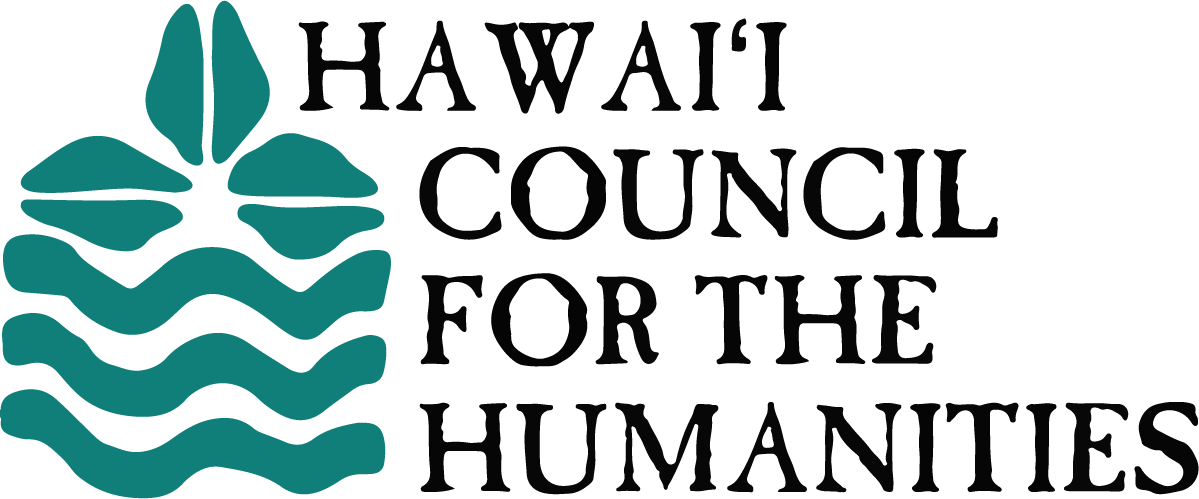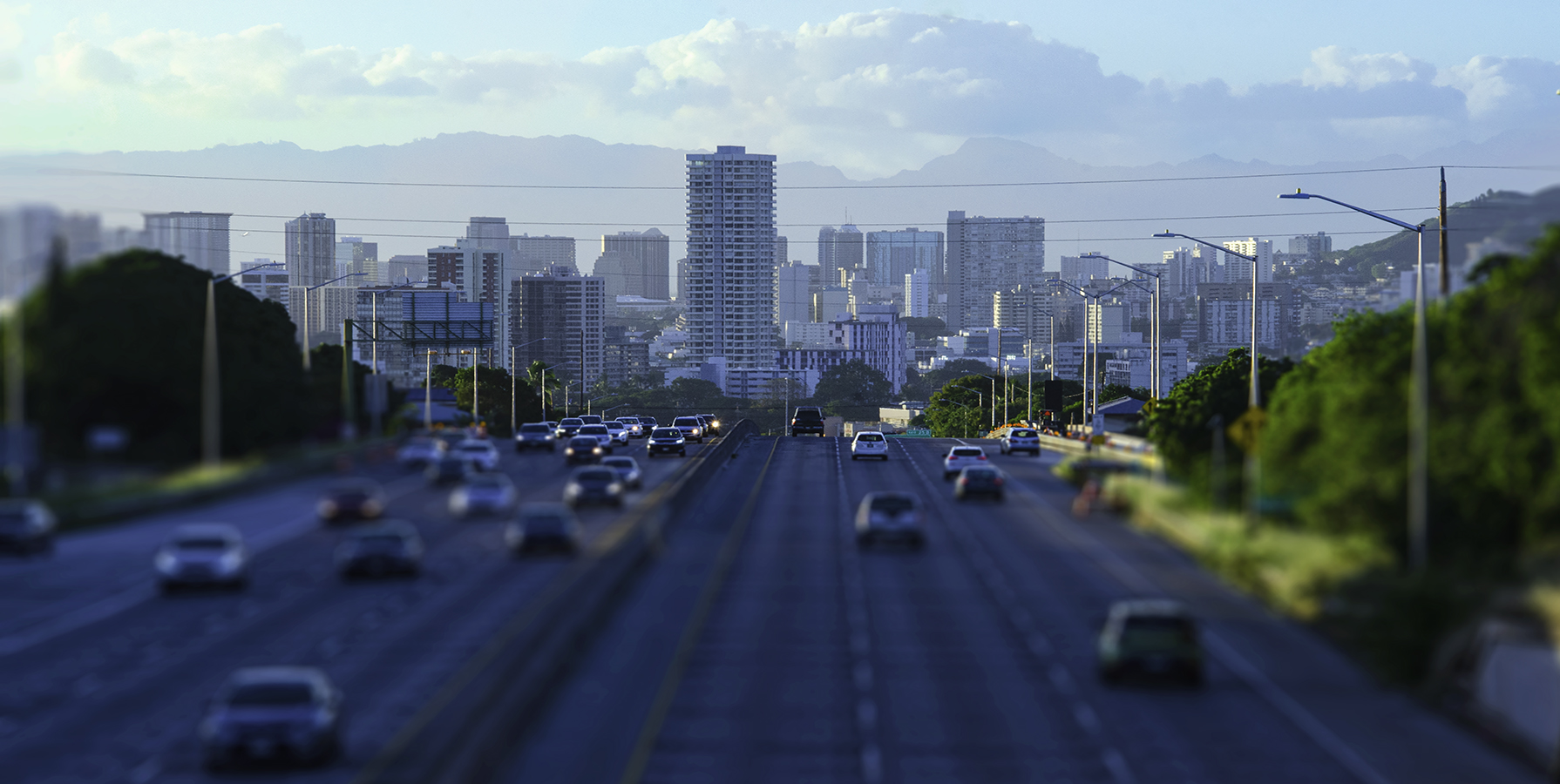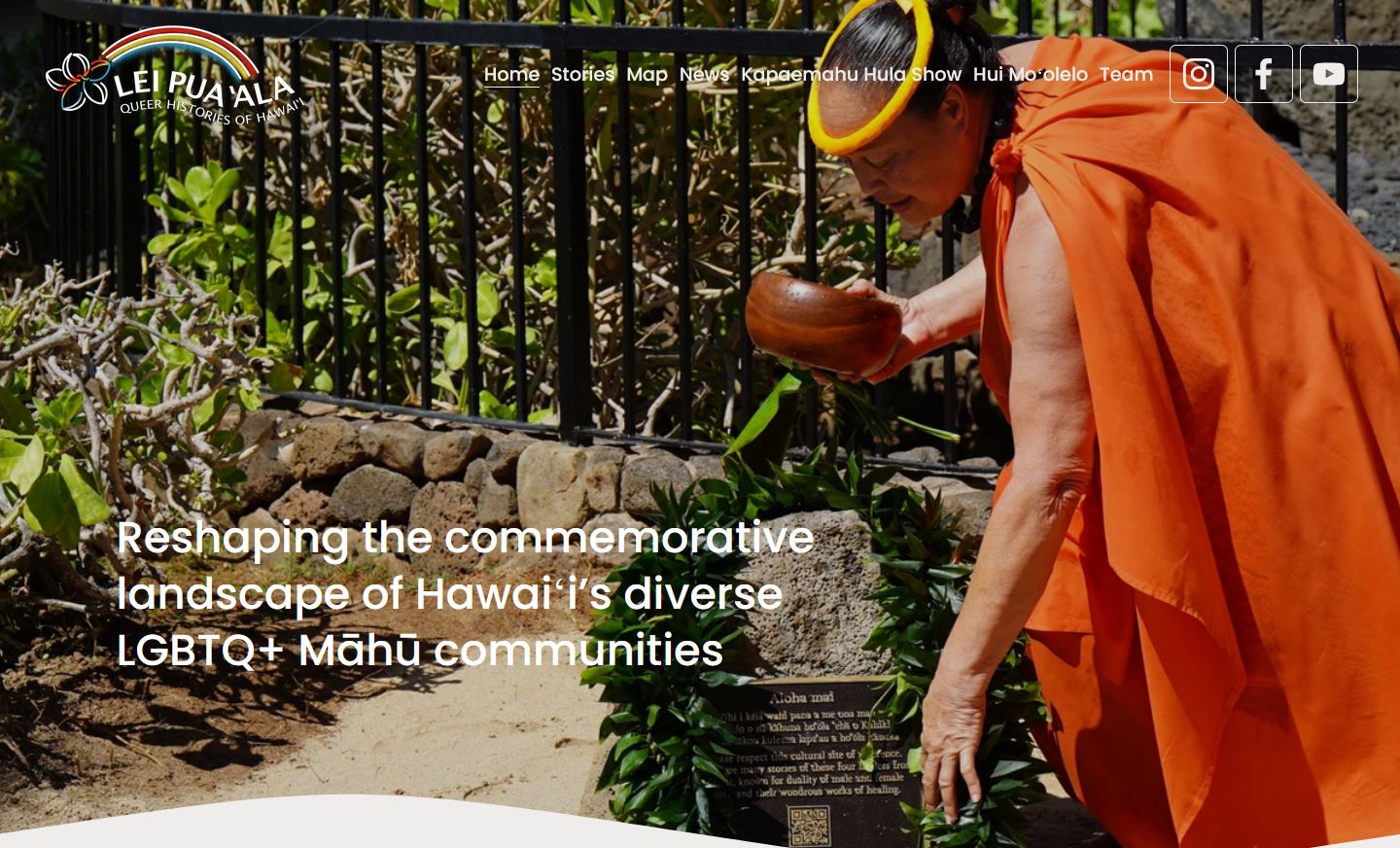
Lei Pua ʻAla Queer Histories of Hawaiʻi
A three-year partnership project with Qwaves/Kanaka Pakipika aims to uplift Māhu and LGBTQ+ stories and voices throughout Hawaiʻi. This project is funded by a $943,700 grant from the Mellon Foundation and their national Monuments Project aimed at transforming the nation’s commemorative landscape to ensure our collective histories are more completely and accurately represented — to create a more just, welcoming, and vibrant present and future. We gather and uplift these stories as “lei pua ʻala,” a lei of fragrant blossoms that honors many voices of our community.
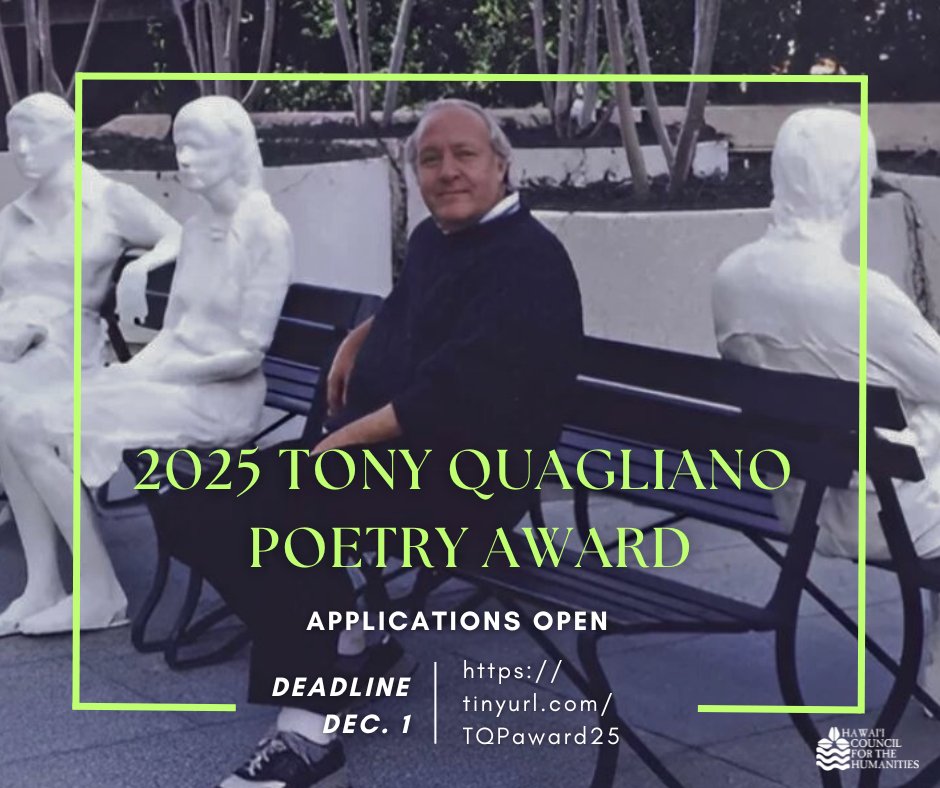
Tony Quagliano Poetry Award - Applications Open!
Applications are open for this biennial award of $1,000 honoring Tony Quagliano’s legacy as an experimental poet and editor. It recognizes an accomplished poet with an outstanding body of innovative, cutting-edge work pushing the boundaries of poetic craft, such as experimental approaches to form and/or language. This award also recognizes a poet who contributes meaningfully to a literary community. Preference is given to poets with connection to Hawai‘i and/or the Pacific. Application deadline: December 1, 2025
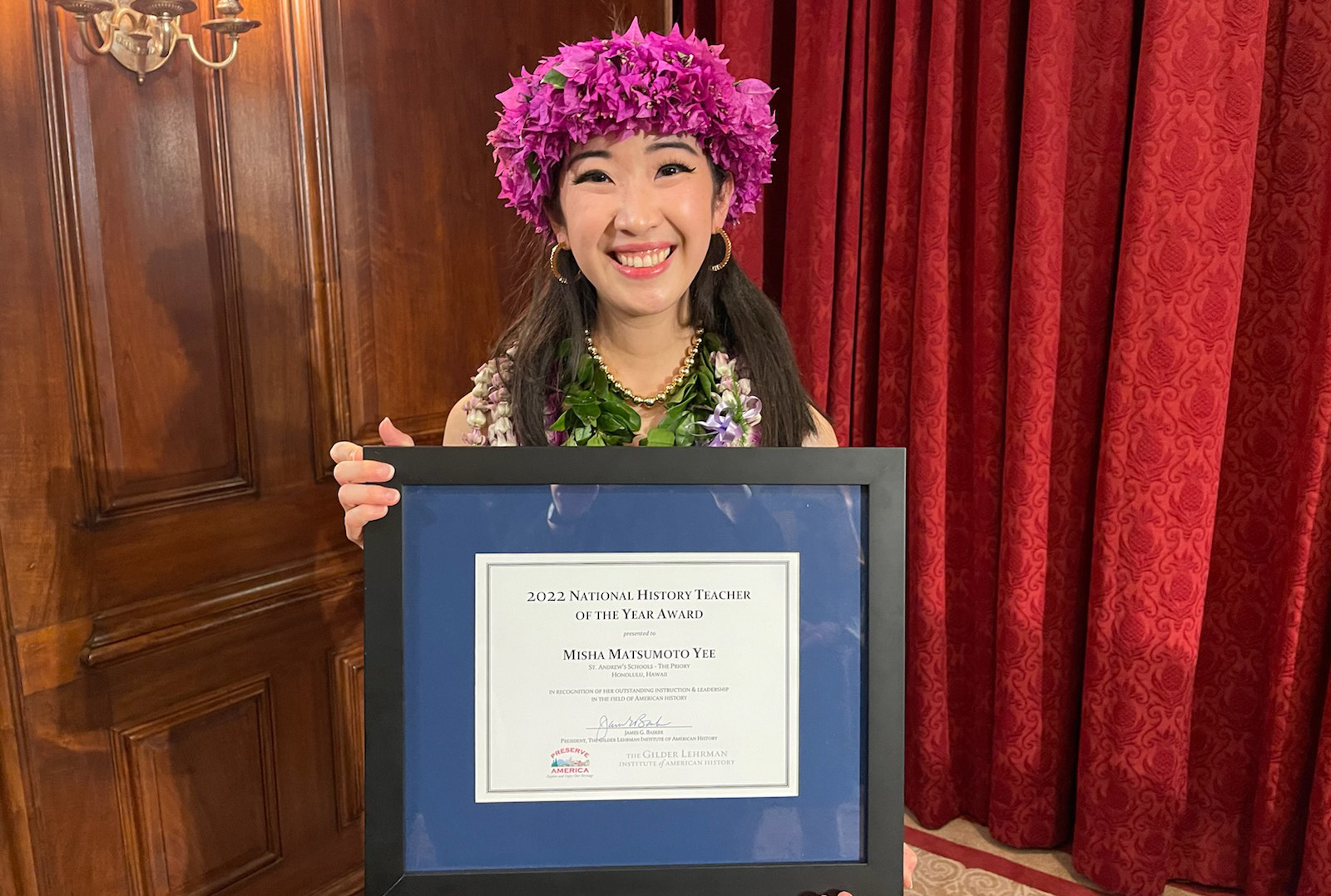
Gilder Lehrman Institute History Teacher of the Year Award
The Gilder Lehrman Institute History Teacher of the Year Award highlights the importance of history education by honoring exceptional American history teachers from elementary school through high school. Each year, the award honors one teacher from each state, the District of Columbia, Department of Defense schools, and US Territories.
Find out which of our Hawaiʻi teachers have been recognized by this award.
